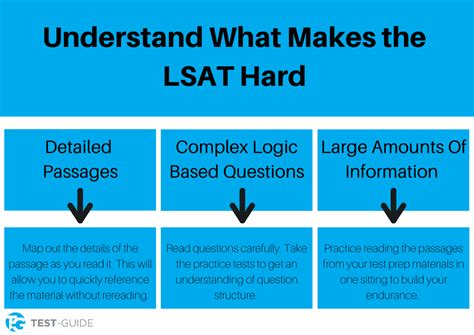The LSAT, or Law School Admission Test, is a standardized test administered by the Law School Admission Council (LSAC) to assess candidates’ reading comprehension, analytical reasoning, and logical reasoning skills. It is a critical component of the law school application process, as it is used by law schools to evaluate applicants and make admissions decisions.

The Challenges of the LSAT
The LSAT is renowned for its difficulty, and for good reason. The test is designed to be challenging, as it seeks to identify candidates who possess the cognitive abilities necessary to succeed in law school. The LSAT presents several unique challenges to test-takers:
Time constraints: The LSAT is timed, with each section having a specific time limit. This can add pressure to the test-taking experience, as candidates must work quickly and efficiently to complete all of the questions within the allotted time.
Complex reasoning: The LSAT questions require test-takers to engage in complex reasoning, including interpreting complex passages, drawing inferences, and analyzing arguments. This can be a challenge for candidates who are not accustomed to this type of thinking.
Unfamiliar content: The LSAT includes questions on topics that may be unfamiliar to some candidates, such as logic, ethics, and legal reasoning. This can make it difficult for candidates to understand the questions and develop accurate answers.
Statistics on LSAT Difficulty
The LSAC publishes statistics on the difficulty of the LSAT. According to the LSAC, the average score on the LSAT in 2023 was 150.7, with a standard deviation of 9.9. This means that the majority of test-takers score within a range of 140 to 160.
However, it is important to note that the LSAT score distribution is not symmetrical. A small percentage of test-takers score exceptionally high, while a small percentage score exceptionally low. In 2023, the top 1% of test-takers scored 170 or higher, while the bottom 1% scored 120 or lower.
Factors that Affect LSAT Difficulty
Several factors can affect the difficulty of the LSAT, including:
Test form: The LSAC uses multiple test forms for the LSAT. The difficulty of a particular test form can vary depending on the specific questions included.
Test day conditions: The conditions on test day can also affect the difficulty of the LSAT. Factors such as noise levels, temperature, and the availability of breaks can impact test-takers’ concentration and performance.
Personal preparation: The amount of preparation that a candidate puts into the LSAT can significantly affect their score. Candidates who spend more time studying and practicing generally perform better on the test.
Conclusion
The LSAT is a challenging test, but it is not impossible to achieve a high score. With adequate preparation and a solid understanding of the test format and content, candidates can increase their chances of success on the LSAT.
